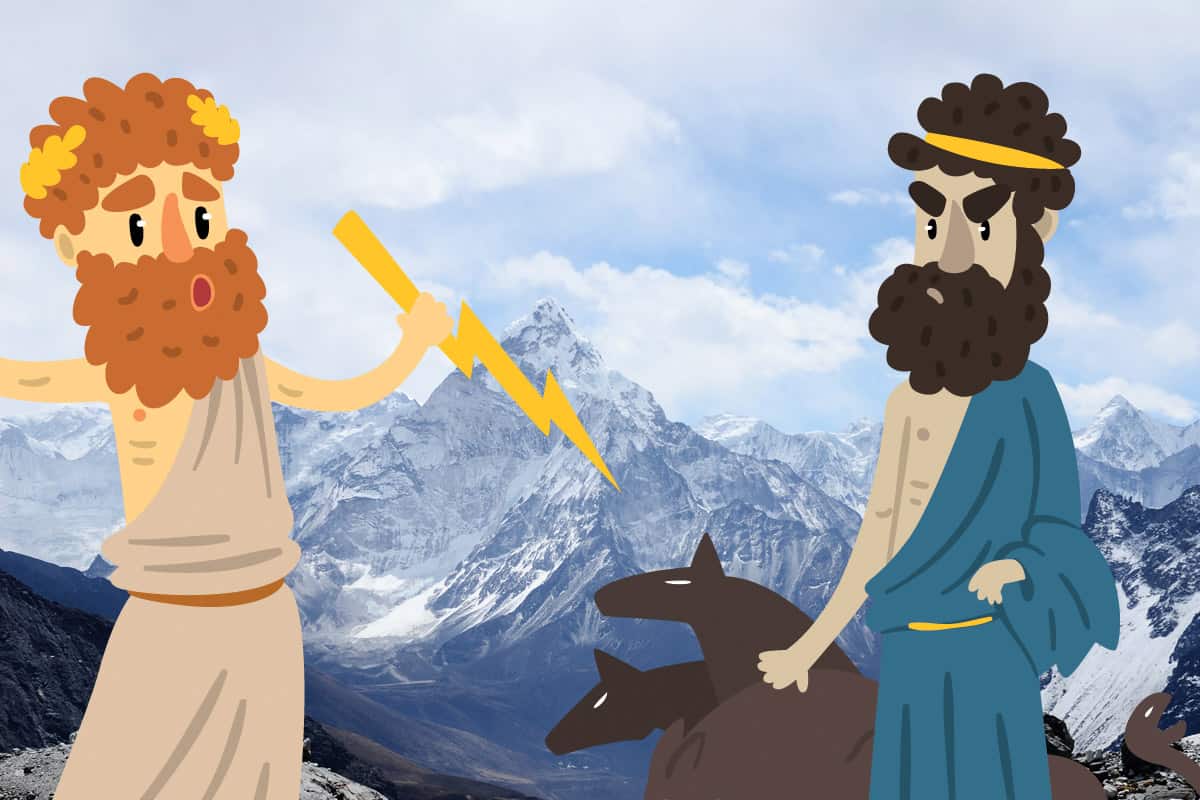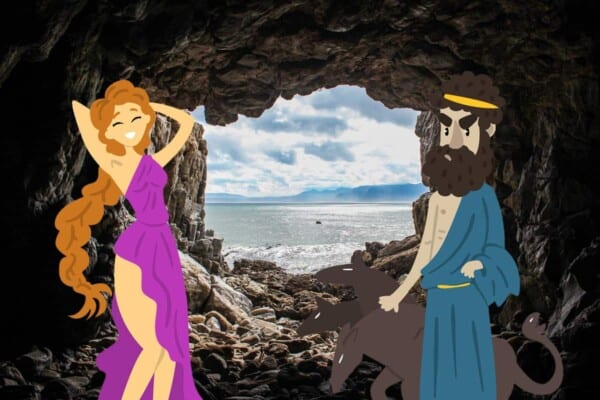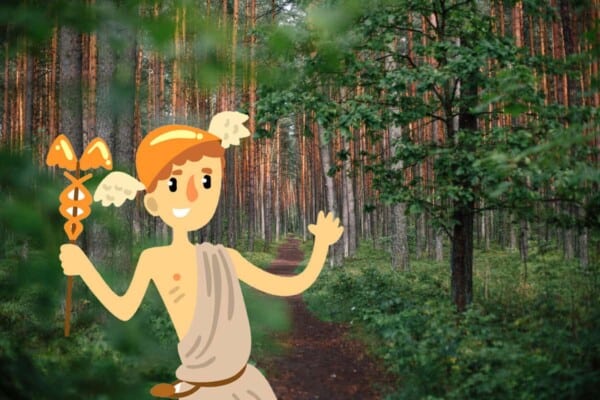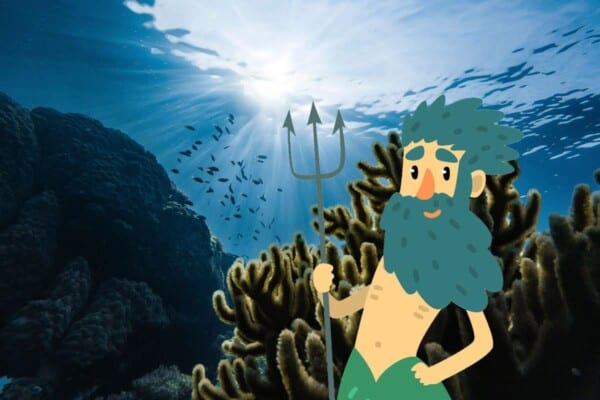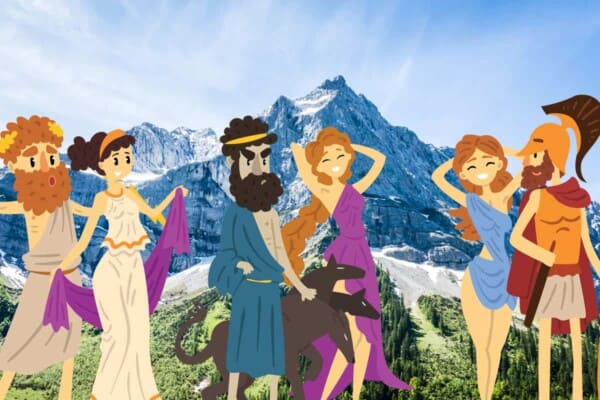One rules the skies while the other rules the Underworld. A draw of lots was all it took to seal the fates of these brothers. Contrary to what one might assume of the lord of the Underworld, he was far more merciful and even forgiving than his brother that ruled the skies and the deities of Olympus.
Where Zeus was seen for his ferocious and power-hungry ruler of Olympus, Hades ruled the Underworld with an iron fist but relatively little concern of thwarted power. This may be due to the fact that, generally speaking, no one wanted to overtake the Underworld. Nonetheless, Hades, while full of the trickery and drama of the Ancient Greeks, was generally more merciful than his brother. The story of Persephone is a great example of that. That does not mean it should be confused with a happy romance. It is not.
Opposites in most regards, these deities still inspire many contemporary works of art and entertainment including the family-favorite Disney’s Hercules, Rick Roidon’s Percy Jackson and the Olympians series, and quite a few board and video games. Let’s get into what has made them so influential in the arts and entertainment over the last few millennia.
What is the Difference Between Zeus and Hades?
— Origin Story
The brothers were born of Cronus and Rhea – the leaders of the Titans. Unfortunately, they did not have the most pleasant upbringing as Cronus had heard a prophecy that his sons would overthrow him. With this news, he began swallowing his children whole as they were born. Tired of this, Rhea plotted against him and gave birth to Zeus in secret.
Zeus was then raised in secrecy and trained in all the necessary elements of warfare to overthrow Cronus and the Titans. Eventually, Zeus was able to force Cronus to regurgitate his swallowed siblings, including Hades. Together, they went on to displace Cronus and overthrow the Titan regime. After they’d won, the three brothers – Zeus, Poseidon, and Hades – drew lots to see who would rule which domain. Zeus took the skies, Poseidon took the seas, and Hades became lord of the Underworld.
Due to the Underworld’s distance from Olympus, Hades typically isn’t considered one of the twelve Olympians and as such has never received the same level of stature as his younger brothers.
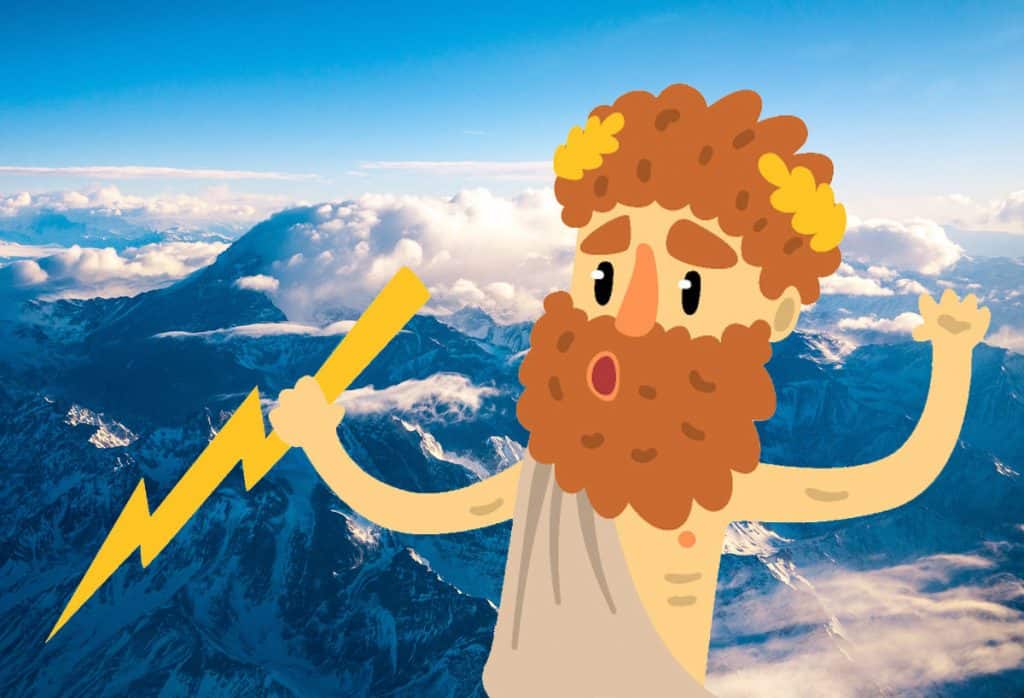
— Physical Characteristics
In line with Greek ideals of beauty and morality, Zeus is often seen with a perfect, athletic physique, hard muscles, and little to no fat. His face would either be sculpted or painted with a trim and neat beard or a long flowing one to demonstrate his wisdom and knowledge as well. Additionally, he is often seen in a warrior’s stance, holding his lightning bolt, ready to throw it at whomever he saw fit.
The Ancient Greeks harbored a distinct fear of Hades and as a result, rarely included him in paintings, sculptures, or other artistic expressions of the deities. What few representations of him there are, aren’t consistent in detail. Classists generally agree that when Cerberus is depicted by another human, that human is Hades. This is primarily due to the fact that the story of Cerberus is so closely interconnected with Hades that one was rarely seen without the other.
— Famous Stories in Mythology & Folklore
The story of Persephone highlights the relative mercy Hades had compared to his brother Zeus. In some stories she was a gift, in other stories she was abducted, in any case, she unwillingly ended up as the wife of Hades. This caused Persephone’s mother, Demeter, great distress. As the goddess of the seasons, agriculture, and the fertility of the earth, she swore that the earth would be barren until she saw her daughter again.
Zeus sent Hermes, the messenger of the gods, to Hades to ask him to return Persephone. He did so but not before forcing her to eat a pomegranate seed which bound her to him and the Underworld while simultaneously promising that he would be a good husband. According to Homer, he specifically said “Go now, Persephone, to your dark-robed mother, go, and feel kindly in your heart towards me: be not so exceedingly cast down; for I shall be no unfitting husband for you among the deathless gods.”
Eventually, Zeus brokered a deal between Demeter and Hades. Persephone would spend only three months a year with Hades and the rest on land with her mother. This is believed to be the reason for winter. The three months Persephone spends in the Underworld makes the winter.
Now while that may seem relatively harsh given Persephone’s lack of consent, it was also merciful in comparison to Zeus’s usual throw a lightning bolt, severe punishment first, ask questions later routine.

— Symbolism
Zeus was symbolic of power, strength, and wisdom. The power and strength thing makes sense given the stories told about him but it does take stretching the imagination to see how he became a personification of wisdom.
Hades on the other hand was so connected with the Underworld that he became symbolic of death and his name became synonymous with the Underworld itself.
— Contemporary Depictions
One of the most iconic contemporary depictions of Zeus and Hades may very well be the 1997 Disney’s Hercules. Given that it’s meant to be child-friendly, Zeus is depicted as an eccentric and erratic but ultimately loving father (he wasn’t in the original lore) and seemed to have a loving relationship with his wife Hera. To be clear, they didn’t have that either. Hades might be more accurate in his general disdain for Zeus and the Olympians.
Clash of the Titans is another famous contemporary depiction of these two great gods. Initially released in 1981, this movie also went on to have a re-make in 2010 followed by a sequel, Wrath of the Titans. It tells the story of Perseus and includes quite a bit of brother rivalry between Zeus and Hades. This rivalry included Hades plotting against Zeus in an effort to gain revenge or retribution for being cast into the Underworld to rule while he maintained glory, power, and stature in Olympus.

